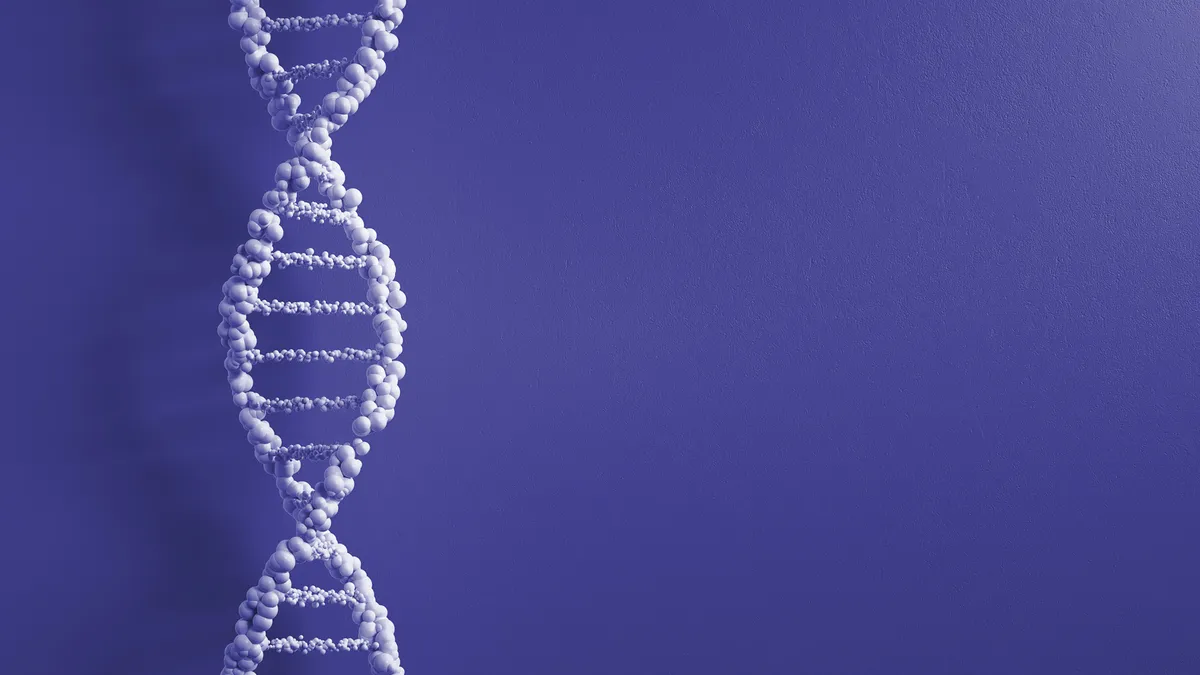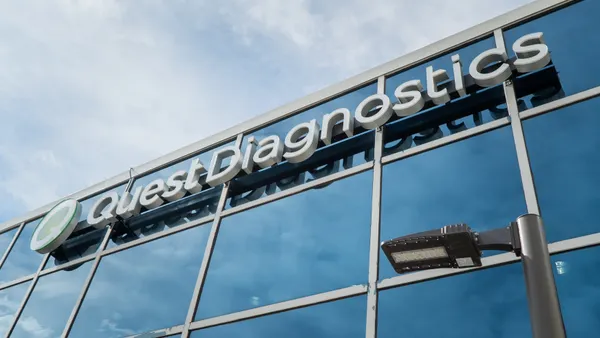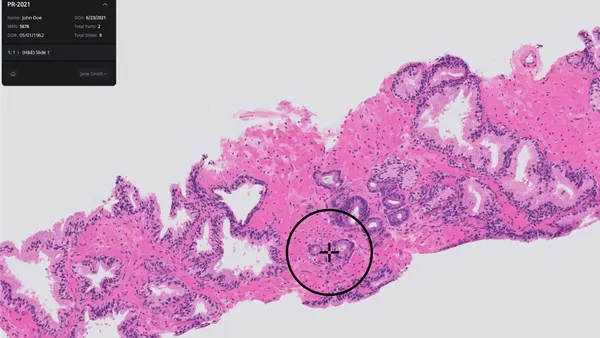Dive Brief:
-
Guardant Health is using genomic data and clinical information collected from its liquid biopsy in advanced cancer patients to build a platform to support drug development, the company outlined Tuesday.
-
The company said results from repeat circulating tumor DNA tests in an 86,000-patient database, described in a poster at the American Association for Cancer Research meeting, will show how tumors evolve and develop resistance. Cowen analysts valued the database at up to $2 billion.
- Guardant also shared an update on its blood test for early-stage colorectal cancer, which could challenge Exact Sciences’ Cologuard. Analysts at SVB Leerink said the results give them “increasing confidence in the assay's performance.”
Dive Insight:
Guardant used the virtual meeting to provide updates on two of its key development projects. That includes its GuardantINFORM database, which includes genomic and clinical data on 85,874 solid tumor patients, 40% of whom underwent testing with its Guardant360 liquid biopsy before and after receiving treatment.
Inclusion of results from multiple tests of individual patients is central to Guardant’s pitch. Tumors evolve over time and in response to treatment, in some cases mutating in ways that render them resistant to drugs. The invasiveness of tissue biopsies means many databases only show tumor genetics at the time of diagnosis. As Guardant's liquid biopsy is less invasive tissue biopsies, the company has results from before and after treatment that could shed light on how tumors evolve.
Analysts at Cowen called the database “one of the key components” of their reasoning for why they expect the share price of Guardant to rise. The perceived importance of the database is underpinned by the history of biopharma interest in companies with genomic databases.
“It is worth recalling, in our opinion, that Roche saw the primary value of [Foundation Medicine] in clinical tests processed — not for clinical diagnostics revenue, but as a means of building up a proprietary database of deeply genetically sequenced cancer patients with well-known phenotypic profiles,” the analysts wrote in a note to investors.
Roche bought Foundation Medicine in 2018 in a deal that valued the diagnostic company at $5.3 billion. The Swiss pharma company paid $1.9 billion to buy Flatiron Health earlier that year, while Amgen bought Decode Genetics for $415 million back in 2012. Cowen analysts place a value of $1.5 billion to $2 billion on the Guardant database.
Guardant will continue to expand the database in parallel to efforts to establish itself in the colorectal cancer market. Researchers have been able to access the colorectal cancer test, the Lunar liquid biopsy, since early last year but Guardant is still working to generate data to support its use in patient care. Guardant is betting big on the test, citing costs for the Lunar studies as a reason for a predicted doubling of its net loss this year.
The Lunar presentation at AACR found the liquid biopsy detected early-stage colorectal cancer with 90% sensitivity and 95% specificity.
SVB Leerink analysts compared the results favorably to earlier Lunar data and, after speaking to Guardant CEO Helmy Eltoukhy, reported the company achieved the improvements without changing the chemistry of the assay.
The trade-off could become clearer when Guardant shares data from its 10,000-patient registration study. The study, which has an estimated primary completion of early 2022 on ClinicalTrials.gov, is designed to back a filing for premarket approval. Such approval would enable Guardant to position Lunar as a convenient alternative to colonoscopies and stool tests, and potentially set it up to go after additional indications.












